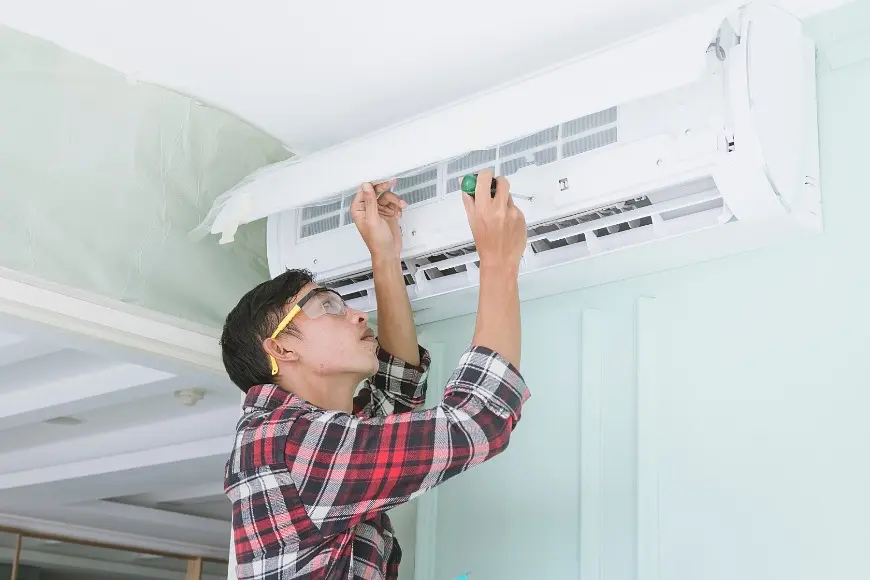Essential Rental Maintenance Duties for Hong Kong Landlords
Listen to the blog audio:
-2.jpeg?locale=en)
A friend who owns property recently contacted me about a leak in their rental unit, unsure of whether the repair responsibility was theirs. This is a typical challenge for many Hong Kong property owners, especially when it comes to maintenance in rental properties. Let's explore the rights and obligations of property owners in Hong Kong, focusing particularly on rental maintenance.
Property Owners' Rights and Responsibilities in Hong Kong
Navigating the maintenance responsibilities of property ownership in Hong Kong can often be challenging and, at times, lead to complex situations.
Consider an incident a property owner friend shared with me. Out of the blue, they received a call from their tenant about a burst water pipe in the unit above, which caused flooding in their apartment. When the tenant approached the upstairs neighbor, they simply shrugged it off, refusing to take responsibility. This raises a question: in such instances, who should bear the cost of repairs, the property owner or the tenant?
Under Hong Kong law, property owners are obligated to maintain and repair the structure within their own units, including walls, floors, and ceilings. However, issues stemming from common areas, like the building's main structure or communal pipes, are typically managed by the Owners’ Corporation (also known as the 'OC').
In this particular case, even though it was confirmed that the upstairs water pipe was at fault, according to the Building Management Ordinance, the upstairs property owner should bear the cost of repairs and compensation. Pursuing this liability and obtaining compensation often involves a lengthy legal process.
In Hong Kong, a property owner’s responsibilities extend to keeping the property’s structure intact (like walls, ceilings, floors) and ensuring all facilities (such as utilities and drainage systems) function properly. Regular inspection and maintenance go beyond mere repairs; they are crucial to prevent significant issues down the line.
Key Maintenance Duties for Property Owners
Common Challenges in Rental Property Maintenance
Rental properties might face various issues, including leaky pipes, electrical faults, or dampness in walls. Regular inspections by property owners can prevent such problems, and if any issues arise, they should be promptly addressed.
In summary, property owners should focus on
- Maintaining and repairing the structure within their units.
- Addressing issues originating from their units, like leaks.
- Collaborating with the OC for the maintenance and repair of shared building parts.
- Ensuring a safe and healthy living environment for tenants.
Managing Maintenance in Rental Properties
Distinguishing Responsibilities in Rental Maintenance
Typically, damage resulting from a tenant’s misuse, like a clogged toilet, is the tenant's responsibility. However, issues that occur during normal use fall under the property owner’s purview.
Legal Obligations in Rental Repairs
Hong Kong's rental laws clearly state that property owners must upkeep the property's basic structure and facilities. Failure to do so allows tenants to seek recourse through Hong Kong Lands Tribunal.
The Importance of a Lease Agreement
For property owners, clearly defining maintenance responsibilities in a lease agreement is crucial. It not only helps in preserving property value but also prevents disputes with tenants. Ambiguities in the lease about maintenance responsibilities can lead to unnecessary conflicts and high repair costs.
Property owners should specify in the lease which repairs are their responsibility and which fall to the tenant. Typically, major structural repairs are the owner's duty, while minor day-to-day repairs may be the tenant's. Regular property inspections can also be a proactive approach for owners to maintain their investment in good condition.
Key Regulations and Considerations
Hong Kong Tenancy Ordinance
The rights and responsibilities of both property owners and tenants are primarily governed by the Hong Kong Landlord and Tenant (Consolidated) Ordinance. Familiarity with these regulations is essential to avoid legal breaches.
Building Deed and Land Registry Provisions
Owners should also be aware of regulations stated in the building deed and by the Land Registry, which may include maintenance at the building management level.
Standards for Residential Maintenance and Elevator Safety
Lastly, adhering to residential maintenance standards and ensuring elevator safety are critical, as they directly impact tenants' quality of life and safety.
LetsGetHome: A New Paradigm in Property Leasing
LetsGetHome is an innovative platform offering personalized rental services for property owners. Its flexible approach allows owners to choose services ranging from price negotiation to lease signing or even full-scale services like property promotion and tenant screening. This efficiency in managing properties ensures a smooth, transparent rental process.
A key feature of LetsGetHome is its pay-per-use service model, allowing property owners to select services based on their specific needs, avoiding unnecessary expenses and ensuring optimal property management.
Lastly, this article aims to resolve some of your queries regarding rental property maintenance. If you have any questions, remember to turn to LetsGetHome for assistance.
